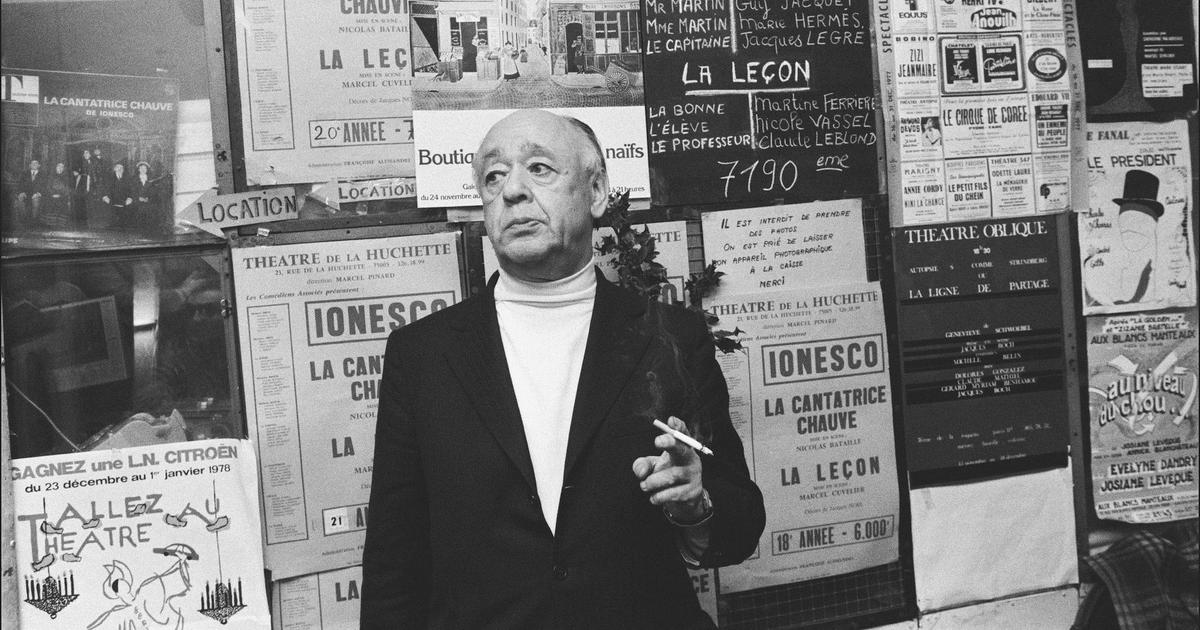One is discreet in Stockholm. No hint, no hint, before the awarding of the Nobel Prizes to the outside, no rumor about possible winners makes the round.
And who dares to make a prediction is usually wrong in the end.
Only when in Stockholm's Royal Swedish Academy of Sciences year after year the famous gilded door opens and the press conference begins, one knows who actually wins the most prestigious award of science.
In 1901, the Nobel Prize was awarded for the first time, a few years after the Swedish dynamite inventor and industrialist Alfred Nobel died. According to his will, annually those who "have made the greatest benefit to mankind" are to be honored.
Famous gala in Stockholm
The award procedure in the scientific categories medicine, physics and chemistry has not changed practically since the beginning of the 20th century. Every year, the Academy decides on a committee of experts from different fields. In addition, several scientists and the surviving previous winners are asked to submit proposals for the Nobel Prize by the beginning of February.
Several hundred researchers are recommended every year. The committee examines the information and recommends suitable candidates to the Academy. At the beginning of October, the winners will be selected shortly before the announcement. But only at a gala in December, the award winners receive the award and the prize money, currently nine million kroner (about 840,000 euros).
The Physics Nobel Prize has so far won 209 men and only three women. It always came back to controversial decisions - some renowned researchers have never received it. The Nobel Prize itself has now become the subject of research and is being studied by historians of science, such as Alexander Blum.
SPIEGEL: Mr. Blum, the Nobel Prize in Physics went to three astrophysicists this year. The background to the decision will only be known in 50 years. Why are the files kept under wraps for so long?
Alexander Blum: The committee does not want to look at the cards and not be pressured by public opinion. The fact that the files disappear first guarantees a minimum of independence. One wants to prevent that the decision process is evaluated. In addition, if it becomes known that a committee member has voted against a potential winner, it could possibly lead to upsets within the physicist community. But of course the secrecy nourishes the myth Nobel Prize. This is not least a clever PR strategy.
SPIEGEL: The first Nobel Prize in Physics went to Wilhelm Conrad Röntgen in 1901, and much has since changed in research. Does that affect the price?
Blum: Very big. Physics itself has developed strongly, today scientists are no longer as universal as they were at the beginning of the 20th century, when one and the same scientist often researched in different areas. This is quite different today: at CERN, for example, hundreds of scientists work together in one project, each with a strong specialization. If somebody gets the Nobel Prize today, then it's clear what. In the past, a researcher could often have been awarded for various achievements. The best example is Albert Einstein.
SPIEGEL: He did not get the prize for his general theory of relativity, but for another piece of work. Why?
Blum: The committee in Stockholm was skeptical of Einstein's theory. So he was awarded the 1921 prize for his contribution to the photoelectric effect, and only for a special formula. That was actually a compromise. Einstein did not have it easy in the scientific community.
SPIEGEL: Why?
Blum: Many time-honored physicists have felt threatened by his theory. They simply did not lag behind during the rapid development. The many ideas that came from this time, such as quantum theory, have significantly changed the view of matter, space and time. In addition, there was suddenly a veritable media hype about Einstein, which was not appealing to many researchers. In some countries, the theory of relativity was therefore blocked for a long time and not taught at all. In Germany there was also an anti-Semitic resistance to the theory of relativity.
SPIEGEL: The Nobel Prize can receive a maximum of three people, but no institution. Does this make the award difficult?
Blum: Yes, because in recent years research projects have become larger and more global. Working with particle accelerators only works in multi-billion international projects. Even with the detection of gravitational waves two years ago, it was difficult to select only three researchers for the price. Such large scientific collaborations are increasing. The last time an individual won in the early 1990s. That was almost 30 years ago.
Georg Goebel / picture-alliance
Meeting of Nobel Laureates 1951 in Lindau on Lake Constance
SPIEGEL: Some researchers have been suggested again and again, but have never won.
Blum: That's right. The German Arnold Sommerfeld was involved in many fundamental reflections on quantum physics and relativity at the beginning of the 20th century. He was proposed dozens of times for the Nobel Prize, but he was unlucky and never got it. He has also failed several women, such as Lise Meitner. There were rumors that she was said to have fallen into exile in Sweden with a committee member. By what one knows, this did not take place on a professional level.
MORE ON THE SUBJECT
SPIEGEL: And what about the case of Chien-Shiung Wu?
Blum: Yes, an almost tragic case. She succeeded in proving a theory of elementary particle physics, the so-called parity violation. For the theory itself, however, two men were honored in 1957, who had published their work shortly before the Nobel Prize. It was one of the fastest honors in the history of the prize, often researchers wait for the release of an important work for decades. In this case, was reacted quickly and that was the Chinese so to speak, the fatal. Because she published her proof of the theory after the deadline for the price in February. And one and the same theory is never honored twice by the committee.
SPIEGEL: Actually a decision against the principles of the price, right? According to the testament of Alfred Nobel actually those researchers are to be awarded, which have brought the greatest benefit to humanity. Many prizes went to theorists. Why?
Blum: The Stockholm Academy did not have an easy time in the early years. After some very experimental years with the somewhat curious Nobel Prize for an interference-based process for color photography came a time of great theoretical upheavals in physics. This basic research could not escape. Many practical applications of these ideas were at that time still incalculable. But over time has also been awarded practically applicable - the development of transistors, 2014 the diodes with blue light. My tip for the future: The research on Google's recently leaked Google quantum computer could be awarded.
SPIEGEL: What influence does the prize have on research?
Blum: Of course, the big institutes hope for as many Nobel prizes as possible. It is quite possible that the price plays a role in project selection, at least in the back of the mind. But that targeted can be researched for the Nobel Prize, I do not think so. Today one sometimes has the impression that the individual disciplines of physics are regularly awarded the prize.
SPIEGEL: Do researchers try to influence the awarding process?
Blum: Some sometimes publish their work at a flashy time. When the proof of the gravitational waves was awarded in 2017, the scientists had published a similar work shortly before the announcement of the Nobel Prize. The date of publication may already be regarded as a small promotion in their own right. That should give the decisive impulse. It obviously worked.















